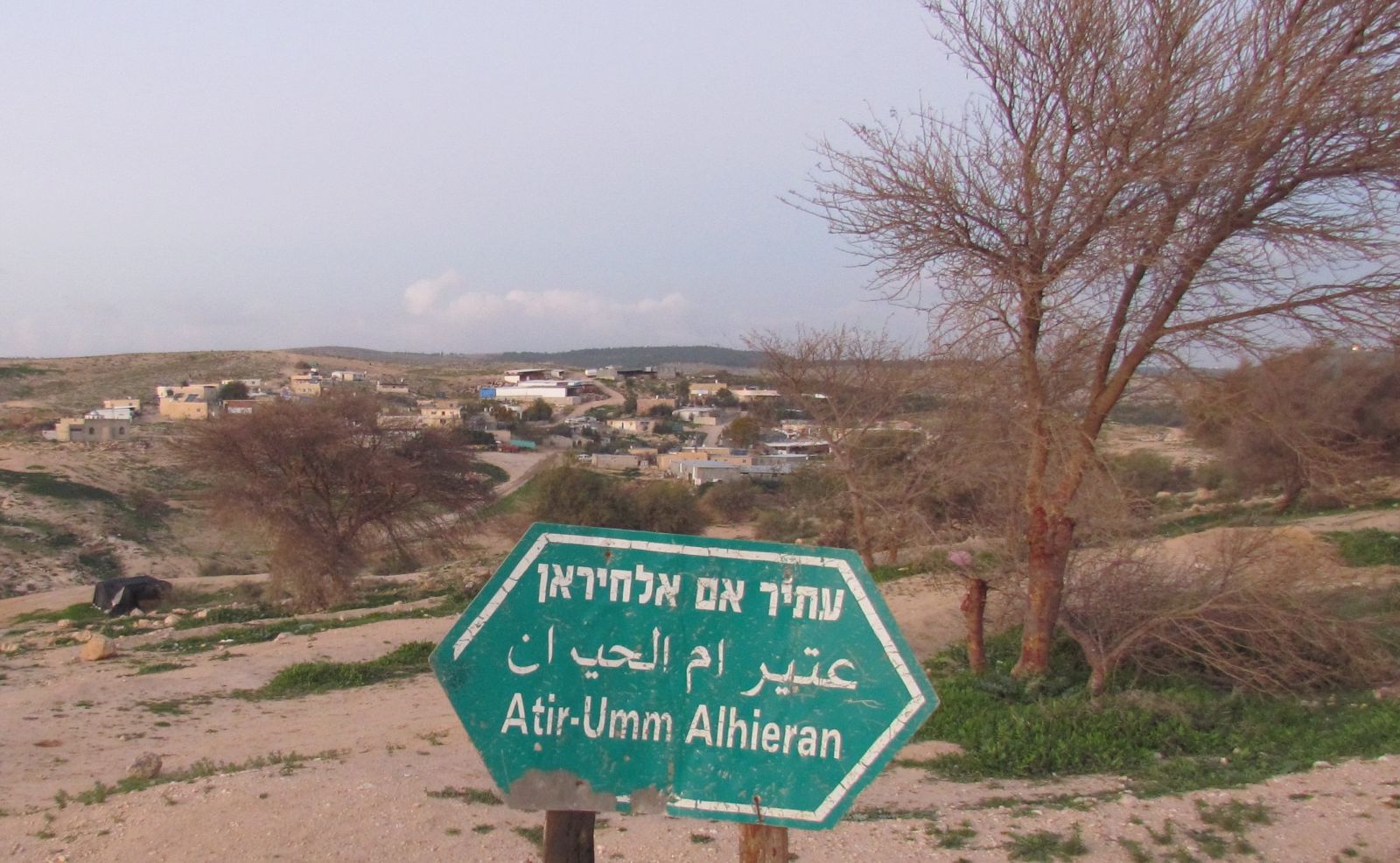Appeal against "Yatir Forest and Park" to be built on ruins of Arab Bedouin village of Atir

Appeal filed to national planning committee against forest plan
On 1 March 2013, Adalah and Bimkom, on behalf of residents of the unrecognized Arab Bedouin village of Atir, submitted an appeal against the approval of Plan 26/03/11 for the "Yatir Forest" before the Israeli National Council for Planning and Building. The plan requires the evacuation of Atir's residents, Arab Bedouin citizens of Israel, and the demolition of their homes and schools in order to build a forest and national park on their land. The appeal is against the plan's approval by the Southern District Council for Planning and Construction in February 2013.
The appeal, submitted by Adalah Attorney Suhad Bishara and Urban Planner Ceasar Yehudim of Bimkom, points out that the plan covers a wide swath of land, 124,500 dunams, but it also includes populated zones. However, the plan shows Atir as a currently unpopulated zone, disregarding the residents and the village completely. The plan does not include alternative housing for the displaced residents.
Plan ignores Arab Bedouin citizens’ constitutional rights
The human rights organizations emphasized that the plan privileges recreational parks over the constitutional rights of Atir's residents to their homes. It violates the citizens’ right to property, especially in light of a recent court ruling that defined them as landholders and not “trespassers”. The plan also violates their constitutional right for dignity. The plan clears the way for the state to forcibly move the residents’ from their land, where the village's residents were born and raised, a place where they raised their families, and where they established family and social life.
Atir: Villagers moved to area by 1956 Military Government order
Atir is one of two areas, which comprise the village of Atir-Umm al-Hieran, home to approximately 1000 Arab Bedouin citizens of Israel of the Al-Qian tribe. Until 1948 the members of Al-Qian tribe lived in Wadi Zuballeh valley, what is known today as Kibbutz Shoval. In 1948, after the establishment of the state of Israel, the military government ordered the people to leave the lands, and in 1956 they were further ordered to move Atir, where they have since been living. Even though they were moved their by the military government, their village was never recognized by the Israeli authorities, and the state provided extremely limited basic services to the village such as water, electricity, health facilities, and schools.
In the early 1970s, the members of the Al-Qian tribe submitted land ownership claims to the Israeli authorities for lands they were ordered to evacuate in 1948, but these claims were never resolved. In evacuation lawsuits filed against the villagers, the Magistrate Court in Beer Sheva (Beer el-Sabe) ruled that the residents of Atir are legal landholders, as the military government transferred them to the area.


















